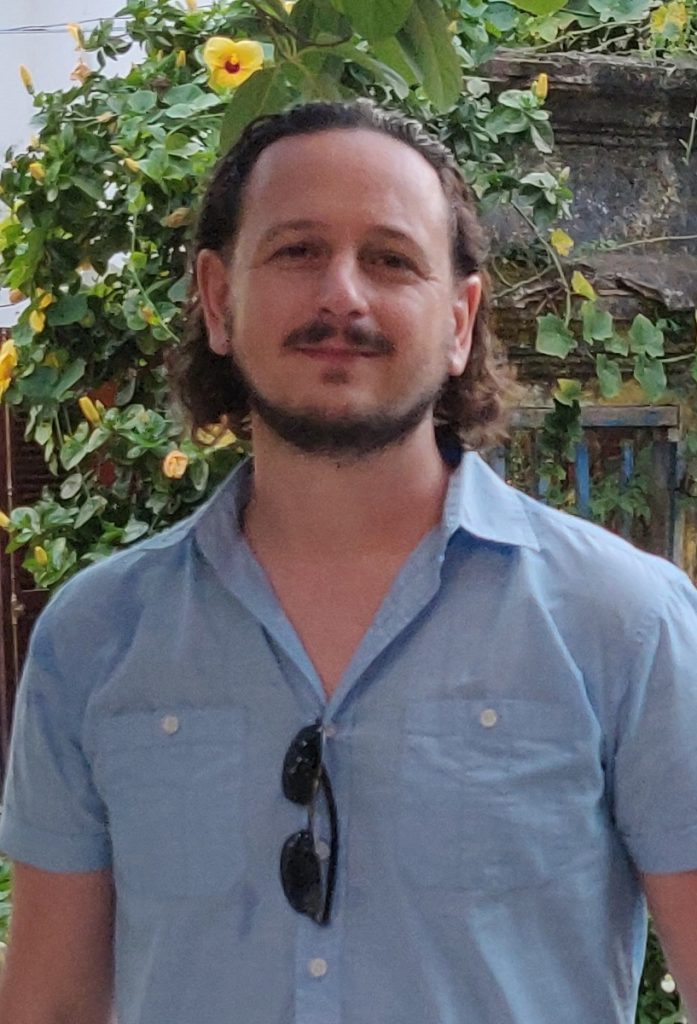Dr. Jesse S. Ovadia
Institutional Affiliation: University of Windsor
Contact: Jesse.Ovadia@uwindsor.ca
Jesse Salah Ovadia is an Associate Professor in the Department of Political Science at the University of Windsor. Dr Ovadia’s research primarily concerns the political economy of oil, gas and mining, with a particular focus on local content policies, industrial development and agrarian change.
He has published numerous articles in journals such as Review of African Political Economy, The Extractive Industries and Society, Resources Policy, Land Use Policy, Third World Quarterly, Geoforum, New Political Economy, and Development Policy Review. He has consulted for the World Bank, African Development Bank, Department for International Development (UK), and many other international institutions. He is the author of The Petro-Developmental State in Africa: Making Oil Work in Angola, Nigeria and the Gulf of Guinea (Hurst, 2016) and co-editor of Developmental States Beyond East Asia (Third World Quarterly 2018, Routledge, 2019). He is also a member of the Editorial Board of Canadian Journal for Development Studies/Revue canadienne d’études du développement and a Contributing Editor of Review of African Political Economy.
Websites:
https://www.uwindsor.ca/political-science/368/dr-jesse-salah-ovadia
Twitter: @js_ovadia
Publications (Selected):
Ghana’s petroleum industry: expectations, frustrations and anger in coastal communities (with Jasper Ayelazuno and James van Alstine) Journal of Modern African Studies. Forthcoming, September 2020.
Natural Resources and African Economies: Asset or Liability? in T Falola and SO Oloruntoba, eds. Palgrave Handbook of African Political Economy. Forthcoming, July 2020.
Local Content in Developing and Middle-Income Countries: Towards a More Holistic Strategy (with Abigail Hilson) The Extractive Industries and Society. Online 26 May 2020.
Incommensurable languages of value and petro-geographies: Land-use, decision-making and conflict in South-Western Ghana (with William Otchere-Darko) Geoforum. Online 25 May 2020.
Oil Exploration and Production in Sub-Saharan Africa, 1990-Present: Trends and Developments (with Emmanuel Graham) The Extractive Industries and Society. 6(2), 2019.
State-Led Industrial Development, Structural Transformation and Elite-Led Plunder: Angola (2002-2013) as a Developmental State. Development Policy Review. 36(5), 2018.
Civil Society and Petroleum Management in Angola in I Overland, ed. Public Brainpower: Civil Society and Natural Resource Management. Basingstoke: Palgrave Macmillan, 2018.
Trajectories of Large-Scale Land Acquisition Dynamics in Angola: Diversity, Histories, and Implications for the Political Economy of Development in Africa (with Aharon de Grassi). Land Use Policy. 67, 2017.
Post-War and Oil-Rich Angola: The Dual Nature of Growth Without Development (with Sylvia Croese) in G Kanyenze, H Jauch, AD Kanengoni, M Madzwamuse, and D Muchena, eds. Towards Democratic Developmental States in Southern Africa. Harare: Weaver Press, 2017.
Local Content Policies and Petro-Development in Sub-Saharan Africa: A Comparative Analysis. Resources Policy. 49, 2016.
The Petro-Developmental State in Africa: Making Oil Work in Angola, Nigeria and the Gulf of Guinea. London, Hurst.
Oil-Backed Capitalist Development in the Global South: A Case of Positive Oil Exceptionalism? in T Di Muzio and JS Ovadia, eds. Energy, Capitalism and World Order: Toward a New Agenda in International Political Economy. Basingstoke: Palgrave Macmillan, 2016.
Local Content and Natural Resource Governance: The Cases of Angola and Nigeria. The Extractive Industries and Society, 1(2), 2014.
The Making of Oil-backed Indigenous Capitalism in Nigeria. New Political Economy, 18(2), 2013.
The Nigerian “One Percent” and the Management of National Oil Wealth Through Nigerian Content. Science & Society, 77(3), 2013.
The Reinvention of Elite Accumulation in Angola: Emergent Capitalism in a Rentier Economy. Cadernos de Estudos Africanos, 25, 2013.
The Dual Nature of Local Content in Angola’s Oil and Gas Industry: Development vs. Elite Accumulation. Journal of Contemporary African Studies, 30(3), 2012.
